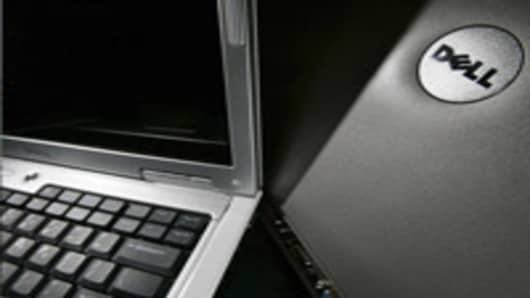Dellthe world's second-biggest personal computer maker, expects its growth to outrun the overall industry's, with Asia leading the trend, founder and CEO Michael Dell said on Tuesday.
"
We expect to continue to grow faster than the industry, particularly in Asia," Michael Dell told a news conference during a visit to South Korea to meet clients and suppliers.
"When you look at our business now, growth is pretty consistent with fourth-quarter levels," he said, adding: "Asia Pacific is certainly a big part of that group."
In the quarter to Feb. 1, Dell's laptop computer revenue rose 24 percent and revenue from server computers, data storage gear and desktop computers increased by 2 percent.
"The consumer side is expanding very dramatically," Dell said. "Laptops are a big driver for here and all over the world."
Dell is more dependent than rivals Hewlett-Packardand International Business Machineson the United States, whose economy is on the brink of recession. Dell generates about half of its revenue in the United States.
"Our business in Asia-Pacific and Japan grew by 41 percent," Michael Dell said, referring to the company's unit sales growth during its latest fiscal quarter.
The company lost the top market-share spot to HP in 2006 as consumers favoured buying notebook PCs in stores, where HP has had an advantage.
Dell is also facing increasing competition from Asian rivals, including Acer and Lenovo Group.
Dell last year abandoned a long-standing direct-only sales model and started selling PCs in retailers including Wal-Mart Stores and Best Buy in North America, Carrefour in Europe and China's GOME Electrical Appliances Holding.
Michael Dell said the company is expanding retail relationships and sees "more retailers signing up."
"For direct (sales), we will continue to grow that portion as well," he also said.
Michael Dell delivered a soothing assessment on the market for computer memory chips, which has struggled with oversupply and steep price drops for more than a year.
"DRAM (dynamic random access memory) demand is growing quite fast," Michael Dell said, citing rising use of the Windows Vista operating system.
Rivals including HP and Apple have benefited recently from falling prices for computer components such as memory, monitors and disc drives.


